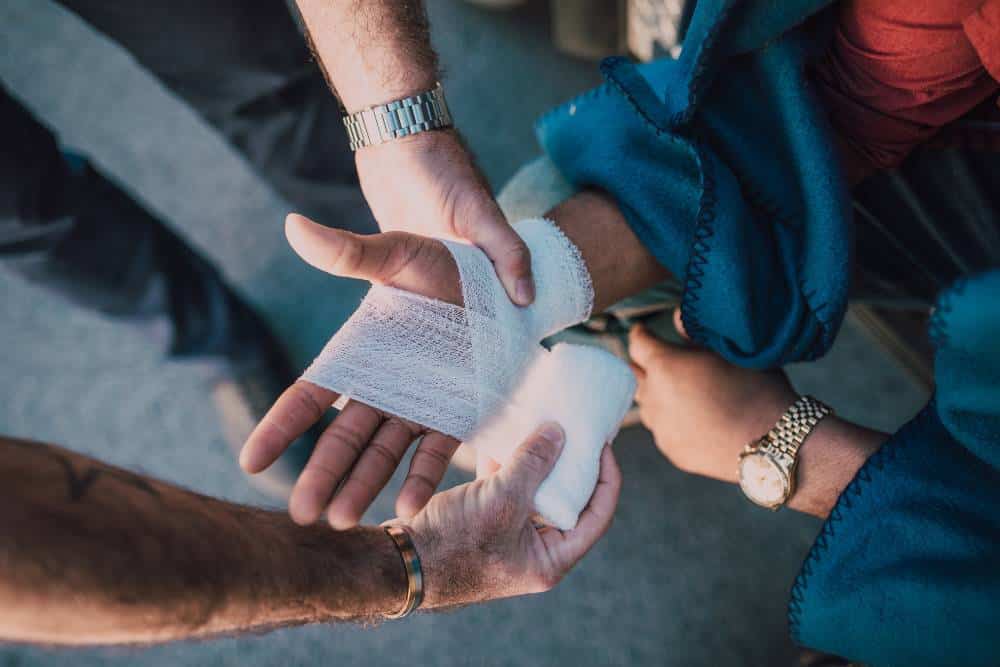Self-harming behaviors involve actions where an individual deliberately inflicts harm or pain on their own body. This behavior, also known as self-mutilation or self-injury, is often linked to mental health disorders. It may serve as a way to gain control following trauma or loss of control or to create a physical representation of intense internal suffering. Common methods of self-harm include pinching, scratching, cutting, bruising, burning, ingesting caustic or poisonous substances, or even breaking bones.
While self-harm can lead to dangerous situations, it is usually not intended as a suicidal act. Often, individuals engage in self-harm to feel a sense of control, punish themselves, or cope with trauma or distressing experiences. However, this behavior is serious and can result in accidental death or severe illness. Seeking self-harm treatment as early as possible is crucial.
Effective treatment for self-harming behaviors is available at Hooked on Hope Mental Health. Our compassionate and skilled team is well-versed in the underlying causes and treatment methods for this recurrent behavior. We focus on understanding each individual’s unique situation, allowing us to create personalized treatment plans. Our outpatient mental health treatment center in Atlanta, GA is dedicated to addressing the emotional and psychological issues that contribute to self-harm, providing a pathway to healing and recovery.
What is Self-Harm?
Self-harm, also known as self-injury, is a common behavior where individuals intentionally hurt themselves to find temporary relief from emotional pain. This behavior is often hidden from friends and family, making it difficult to detect.
Self-harm can begin in childhood and often escalates during adolescence due to the pressures of growing up, along with the physical and hormonal changes of puberty. Significant life changes, such as the end of a relationship, increased work-related stress, or personal trauma, can intensify emotions, leading to a heightened urge to self-harm.
Why Do People Self-Harm?
Everyone experiences stress and worries differently. While some can cope by talking to friends and family, others may find their difficulties overwhelming. When emotions like distress, anger, or sadness are not expressed, they can build up and feel unbearable. For some, this leads to using their bodies to express the intense thoughts and feelings they cannot voice aloud. Self-harm becomes a way to cope when these emotions become too much to handle. If you self-harm, you may notice that feelings of anger, distress, worry, or depression can intensify the urge to hurt yourself.
The reasons behind self-harm can vary widely from person to person. Some common triggers reported by young people include:
- Difficulties at Home
- Arguments or Problems with Friends
- School Pressures
- Bullying
- Depression
- Anxiety
- Low Self-Esteem
- Transitions and Changes, such as Changing Schools
- Alcohol and Drug Use
When several of these issues converge, they can quickly become overwhelming, making it difficult for one person to manage alone. Many people self-harm to “release the hurt, anger, and pain” caused by these pressures. They often feel there are no other options available. However, talking to someone you trust or a healthcare professional can help you explore alternative ways to cope with the emotional pain you are experiencing. If you or a loved one are struggling with self-harm, contact us today at 470-287-1927 or fill out our online contact form to learn more about our outpatient self-harm treatment programs

Common Signs & Symptoms of Self-Harm
Self-harm is a behavior indicating internal conflict and is often a symptom of underlying mental health issues. Identifying self-harm can be challenging, as individuals usually go to great lengths to hide their injuries.
Signs of self-harm include:
- Wearing long-sleeved clothing even in warm weather
- Unexplained broken bones
- Injuries attributed to accidents
- Keeping sharp objects or lighters nearby
- Spending a lot of time alone
- Easily agitated
Effects of Self-Harm
Self-harm can lead to serious physical and psychological consequences. The behavior often creates a cycle of shame and self-harm, leading to ongoing distress.
Effects of self-harm include:
- Permanent scarring
- Persistent feelings of shame and embarrassment
- Social isolation
- Damaged relationships
- Difficulty concentrating
- Low self-esteem
- Suicidal thoughts
What Causes Self-Harm?
Self-harm is often a response to overwhelming emotional challenges at any stage of life. It is typically a symptom of mental distress and may indicate underlying psychiatric or emotional disorders.
Various psychological factors can contribute to self-harm, including:
- Anxiety
- Depression
- Obsessive-Compulsive Disorder (OCD)
- Personality Disorders
Social and relationship problems, such as bullying, relationship issues, and societal pressures, can also contribute to anxiety, stress, or depression, leading to self-harm. Trauma or abuse, such as physical or sexual abuse, severe trauma, or the loss of loved ones, can trigger depression and self-harming behaviors.
Types of Therapies Used for Self-Harm Treatment
Treatment for self-harm is tailored to each individual’s needs, incorporating various therapeutic approaches to guide patients through recovery.
Common therapies for Self-Harm include:
- Dialectical Behavior Therapy (DBT)
- Group, Individual, and Family Therapy Sessions
- Experiential Therapies
- Motivational Interviewing
- Cognitive Behavioral Therapy (CBT)
- Acceptance and Commitment Therapy (ACT)
- 12-Step Recovery Principles

Preventing Self-Harm
Recognizing that you have a problem and deciding to seek help is a crucial step towards healing from self-harm.
Here are some steps you can take to begin your journey to wellness:
- Confide in Someone and Seek Help: Sharing your struggle with someone you trust can be incredibly relieving. Admitting you need help is a significant first step toward recovery.
- Identify Personal Triggers: Understanding the emotions that drive your urge to self-harm, such as sadness, shame, guilt, anger, or loneliness, is essential. Recognizing these triggers can help you address them more effectively.
- Explore Alternative Tension-Relieving Techniques: Consider safer methods to release tension, like squeezing ice cubes, taking cold showers, eating hot chili peppers, or drawing on your skin with a red pen. Experiment with different strategies to find what works best for you.
- Develop New Coping Strategies: Once you’ve identified your triggers, seek healthier ways to cope. Engage in creative activities such as painting, writing, or music. Physical activities like exercising, taking a bath, or talking to a friend, therapist, or support group can also be beneficial.
- Create a Self-Soothe Kit: Assemble a collection of items that bring you comfort and focus on sensory experiences. This could include objects with pleasant textures, scents, or items that remind you of positive memories. Your kit might contain pictures, music playlists, puzzles, or coloring books. Use this kit when you feel the urge to self-harm.
Begin Your Self-Harm treatment in Atlanta Today
Take control of your life and break free from self-harm with the support of Hooked on Hope Mental Health in Atlanta. Our outpatient mental health facility is dedicated to providing compassionate, personalized care through a variety of evidence-based therapies. Our experienced team is committed to supporting you throughout your recovery journey, offering effective strategies to help you manage and overcome self-harm. Reach out to us today to start your path toward a healthier, more fulfilling life, free from the grip of self-harm. Together, we’ll develop a plan to restore your peace of mind and enhance your overall well-being. Contact us today at 470-287-1927 or fill out our online contact form to learn more about our dedicated self-harm treatment programs and start on the path to recovery and emotional balance.

